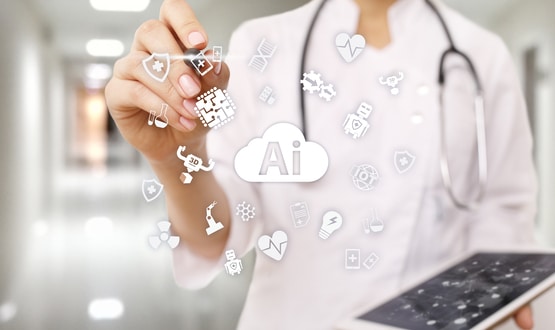Roche UK and digital health technology company Nye Health have announced a partnership aiming to co-create digital solutions that learn, personalise and adapt to patients’ needs outside of a hospital or traditional clinical setting.
Co-created with patients, the tools will have the potential to identify new digital biomarkers and disease trajectories. The partnership will first focus on the development of digital tools to improve pharmacovigilance in a post-market authorisation context.
By building on Nye’s patient-powered data capabilities, the partnership aims to combine the threads of digital information available from a person’s smartphone, wearable devices and electronic medical records into a single, clear and comprehensive picture of their health over time.
Dr Rebecca Pope, UK digital and data science innovation lead at Roche UK, said: “This partnership represents the next step in Roche UK’s vision of using artificial intelligence to reduce the data gap which currently exists.
“Nye Health aims to give people a ‘digital driving seat’ in allowing them to control how they use their data to manage their health and to contribute to the advancement of the field for others, in a way that is protected and anonymised.
“Nye Health didn’t approach us with an idea for a specific app, they asked us about the greatest unmet needs for people in society today and suggested we work together to solve them,” she added.
“We collectively recognised that the need to build digital health tools in partnership with patients and the health system, in order to help people access the right care at the right time, has never been greater.”
The real-world data produced by this partnership can be used to speed up the detection of safety signals and potentially integrated into clinical workflows, which may lead to patients being identified earlier, pathways being identified earlier, pathways being optimised, and outcomes improved.
Dr Alexander Finlayson, GP, CEO at Nye Health and Doll fellow at Oxford University, said: “Digitisation and patient centricity are enablers, without which it has proven very difficult to operationalise the promise of personalised medicine.
“They represent a profound shift for an entire industry. Realisation of their potential to improve patient outcomes requires a marriage of worlds (digital, life sciences, healthcare, and anthropology) and deep interdisciplinary collaboration with an unusual mix of agility and planning, urgency and patience, long-term commitment, and global scale.
“Roche UK is at the forefront, and we are delighted to have partnered with them to lay the foundations for this transformation together.”
Over the last 20 years, most industries have seen the development and widespread adoption of digital tools combined with artificial intelligence (AI), but until the last few years the health industry had remained relatively analogue.
AI is now a driving force in the digital transformation of the NHS and wider health sector, with more possibilities for what it could achieve being uncovered on a regular basis.
An example came at the beginning of the month, when a study led by researchers from The Royal Marsden NHS Foundation Trust found that AI could help doctors diagnose lung cancer earlier.

